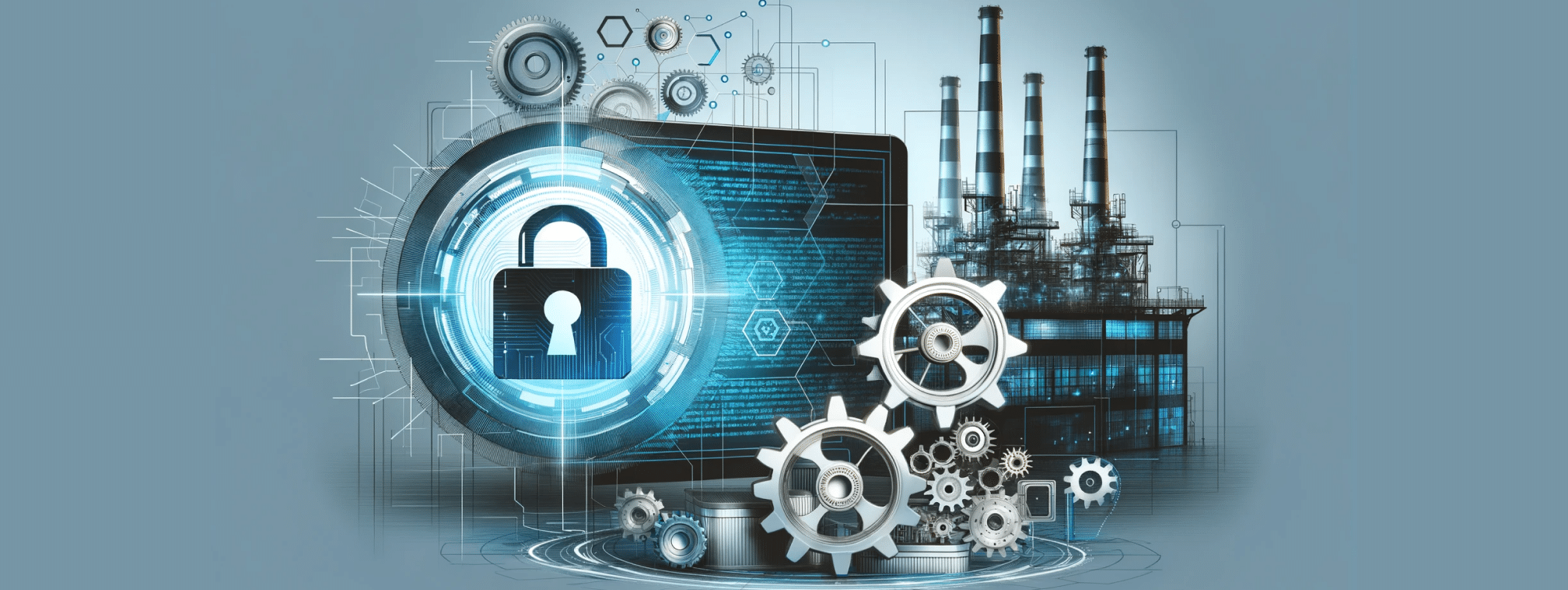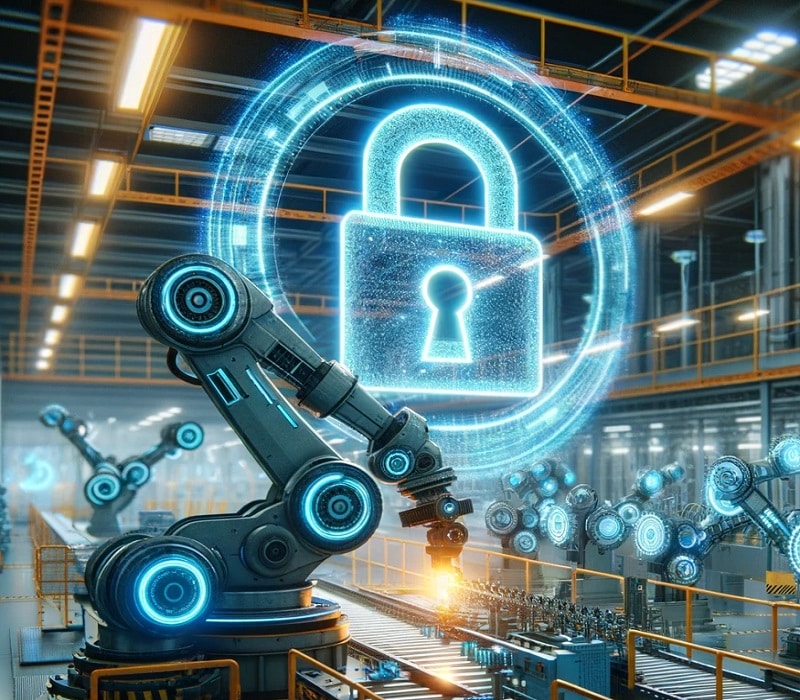Cybersecurity in Manufacturing: How the NIS2 Directive Impacts Manufacturers
Cybersecurity in Manufacturing: How the NIS2 Directive Impacts Manufacturers

As the manufacturing is digitising rapidly, so does the risk of cyberattacks. Phishing attempts have grown more sophisticated, and ransomware attacks are on the rise. Despite the growing threat, many manufacturers do not prioritise arranging the necessary cybersecurity measures. The recent introduction of the NIS2 Directive in 2023 marks a significant turn in the road, setting new benchmarks for cybersecurity practices within this vital sector. The NIS2 Directive will not only actively force European manufacturers to act on safeguarding manufacturing processes, but it also highlights the evolving severity of digital threats.
In this article, we delve into the implications of the NIS2 Directive for the manufacturing industry unravelling the complexities and opportunities it presents. By understanding the directive’s impact, manufacturers can not only comply with these new regulations, but also ensure a future-ready and secure manufacturing environment.
Cybersecurity Challenges in the Manufacturing Industry
To understand why the NIS2 Directive came into force, it is important to understand the cybersecurity challenges that impact the manufacturing industry. Below are listed the major challenges:
- Supply Chain Attacks: Third-party vendors are frequently exploited as entry points to access sensitive systems or data within manufacturing organizations.
- Intellectual Property Theft: Attackers may steal trade secrets, product designs, or customer data for competitive advantage or financial gain.
- Phishing Attacks: Employees are often targeted to leak valuable data like intellectual property and customer information.
- Industrial IoT Attacks: Connected devices used in manufacturing processes are vulnerable to cyberattacks, especially if not properly secured.
- Ransomware Attacks: Any disruption in manufacturing processes can lead to significant financial losses, making ransomware attacks particularly damaging.

Why is the NIS2 Directive Important for Manufacturers?
The NIS2 Directive redefines the importance of cybersecurity for manufacturers, presenting both challenges and opportunities. Within the directive, the manufacturing industry is categorised as an “important entity”. This underscores the sector’s vulnerability to cyber threats, which can have far-reaching consequences on public health and safety.
Recognising the important role that the supply chain plays in the cybersecurity of the manufacturing industry, the NIS2 directive will require manufacturers to prioritize supply chain security. Manufacturers must now assess and mitigate risks not only within their operations but also across their network of suppliers, partners, and contractors. This expanded responsibility necessitates a comprehensive approach to cybersecurity, encompassing all facets of the supply chain.

Furthermore, manufacturers are forced to implement sophisticated risk management processes. These processes must be dynamic, capable of evolving with the threat landscape. This may entail significant investments in new technologies and expertise, necessitating a shift in operational priorities and resource allocation.
To align with the NIS2 Directive’s regulations, manufacturers will need to intensify collaborations with IT service entities like Managed Security Service Providers (MSSPs) and cloud service providers. This strategic alliance, while enhancing cybersecurity measures, may lead to elevated expenses and necessitate alterations in current business methodologies and operational processes. Though, given the important nature of cybersecurity, the benefits will outweigh the additional costs and changes.
Overall, the NIS2 directive will most likely have a significant impact on the manufacturing industry in its entirety, as it forces manufacturers to invest heavily in cybersecurity measure to comply.
Strategies for Effective Cybersecurity in Manufacturing Environments
Implementing effective cybersecurity strategies is crucial for manufacturers, not only in light of the NIS2 Directive, but also in its core to ensure protected manufacturing operations, continuity, and a competitive edge. As manufacturing industries increasingly integrate digital technologies, the landscape of cybersecurity threats evolves correspondingly. Given this complex environment, it is critical for manufacturers to not only implement, but continuously evolve their cybersecurity strategies. A few key takeaways:
- Emphasis on Holistic Cybersecurity Approaches: Adopt a comprehensive cybersecurity strategy that addresses all aspects of manufacturing operations, from production lines to supply chains.
- Prioritizing Continuous Risk Management: Regular risk assessments are crucial to identify and address new and evolving threats.
- Building a Culture of Cybersecurity Awareness: Foster a company-wide culture that emphasizes the importance of cybersecurity, ensuring that all employees are aware and vigilant.
- Partnering with Experienced Cybersecurity Providers: Collaborating with a reliable and experienced cybersecurity partner is essential. This partner can offer specialized expertise, resources, and insights that are critical for robust cybersecurity management in manufacturing environments.
- Staying Ahead of Regulatory Changes: Keep informed about regulatory changes like the NIS2 Directive to ensure compliance and adapt strategies accordingly.
Leveraging Modern Manufacturing Software for Cybersecurity and Compliance
In the context of cybersecurity, particularly under the NIS2 Directive, modern manufacturing solutions play a strategic role. They serve not only as frameworks for compliance with the Directive but also provide the basis against diverse cyber threats.
Their significance is particularly shown in the adaptability to integrate with advanced cybersecurity solutions and features. This flexibility is essential for manufacturers facing the multifaceted nature of cyber threats. By facilitating seamless integration with cutting-edge security technologies, these software solutions enable manufacturers to craft a tailored and robust cybersecurity strategy, effectively addressing both current and emerging digital risks.
The Benefits of Cybersecurity Compliance
While the NIS2 Directive undoubtedly introduces new challenges and costs for manufacturers, its long-term benefits cannot be overstated. Compliance with the Directive leads to significantly improved security measures, protecting against the increasing threats in the digital age. This enhanced security is not just about safeguarding data and processes; it translates into a competitive advantage in a market where reliability and trust are paramount.
Moreover, adhering to the NIS2 Directive prepares manufacturers for future regulations, ensuring they are ahead of the curve in regulatory compliance. While there may be an initial increase in expenditure towards cybersecurity initiatives, this investment is a strategic move towards sustainable growth and resilience. It positions manufacturers not just to meet current demands but also to thrive in an evolving digital ecosystem. Smaller companies, though facing challenges with the additional costs, can view this as an opportunity to refine their operations and explore collaborations or partnerships to mitigate financial impacts.
Ultimately, compliance with the NIS2 Directive is an investment in a manufacturer’s future, securing its place in a rapidly advancing technological landscape.
